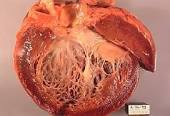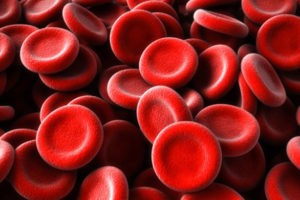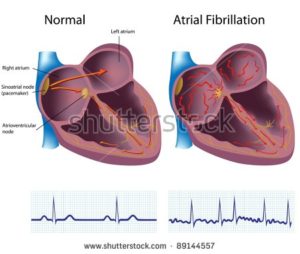
Diagnosed with Cancer? Your two greatest challenges are understanding cancer and understanding possible side effects from chemo and radiation. Knowledge is Power!
Learn about conventional, complementary, and integrative therapies.
Dealing with treatment side effects? Learn about evidence-based therapies to alleviate your symptoms.
Click the orange button to the right to learn more.
- You are here:
- Home »
- Blog »
- side effects ID and prevention »
- Cardiotoxicity of Checkpoint Inhibitors
Cardiotoxicity of Checkpoint Inhibitors

Death resulting from cardiotoxicity of checkpoint inhibitors- myocarditis, pericardial disease, and vasculitis was reported to occur in 50%, 21%, and 6% of patients, respectively.
There are short, long-term and late stage side effects. Most people know about common short term side effects like hair loss, nausea and fatique. Most cancer patients can deal with short term problems that pass after active therapy stops. I’m talking about the cardiotoxicity of checkpoint inhibitors.
The article linked below documents this more serious side effect. And it is important to note the very last sentence of the study linked below- ““However, there may be subclinical forms of these toxicities that are still not recognized,” he added…” The cardiotoxicity of checkpoint inhibitors discussed below are only those heart problems that resulted in death in a relatively short period of time. There may be longer term heart problems that surface months or years from now. Conventional oncology just does not know.
Checkpoint inhibitors have been developed and approved by the FDA relatively recently. Chemotherapy regimens such as adriamycin, cytoxan, busulphan and melphalan have been around for decades. The cardiotoxicity of these four chemo regimens have been known about for years. Despite this fact, these cardiotoxic chemotherapies are prescribed daily to cancer patients and survivors.
My guess is that if you are considering undergoing a checkpoint inhibitor, you are throwing a hail Mary pass. Meaning your cancer type and stage is serious and you are willing to risk serious life-threatening adverse events in hopes of achieving the sometimes spectacular benefits of checkpoint inhibtor therapy.
My point in writing this blog post is to not only alert patients undergoing checkpoint inhibitors about these life-threatening side effects but to also add to the conversation therapies that may slow or prevent the cardiotoxicity of checkpoint inhibitors.
While it has been shown that supplementation such as CoQ10, curcumin and omega-3 fatty acids can minimize the cardiotoxicity of chemotherapy regimens such as adriamycin, they havn’t been studied for checkpoint inhibitors. I will keep an eye out and I will be sure to update this post if I ever come across studies that cite the cardio-benefit of these nutritional supplements.
To learn more about heart-friendly nutritional supplementation, scroll down the page, post a question or a comment and I will reply to you ASAP.
Thank you,
David Emerson
- Cancer Survivor
- Cancer Coach
- Director PeopleBeatingCancer
Recommended Reading
- Oncologist’s Don’t Explain Blood Cancer Diagnosis, Therapies or Side Effects-
- Iron Deficiency In People With Cancer
- Cancer Prehabilitation-
Myocarditis
“Myocarditis, also known as inflammatory cardiomyopathy, is inflammation of the heart muscle.[1] Symptoms can include shortness of breath, chest pain, decreased ability to exercise, and an irregular heartbeat.[1] The duration of problems can vary from hours to months.[1] Complications may include heart failure due to dilated cardiomyopathy or cardiac arrest.[1]…”
Pericardial effusion
“Pericardial effusion (“fluid around the heart”) is an abnormal accumulation of fluid in the pericardial cavity. Because of the limited amount of space in the pericardial cavity, fluid accumulation leads to an increased intrapericardial pressure which can negatively affect heart function…”
Vasculitis
“Vasculitis is a group of disorders that destroy blood vessels by inflammation.[2] Both arteries and veins are affected. Lymphangitis is sometimes considered a type of vasculitis.[3] Vasculitis is primarily caused by leukocyte migration and resultant damage…”
Checkpoint inhibitor
“Checkpoint inhibitor therapy is a form of cancer treatment immunotherapy currently under research. The therapy targets immune checkpoints, key regulators of the immune system that stimulate or inhibit its actions, which tumors can use to protect themselves from attacks by the immune system…
Currently approved checkpoint inhibitors target the molecules CTLA4, PD-1, and PD-L1. PD-1 is the transmembrane programmed cell death 1 protein (also called PDCD1 and CD279), which interacts with PD-L1 (PD-1 ligand 1, or CD274). PD-L1 on the cell surface binds to PD1 on an immune cell surface, which inhibits immune cell activity…”
Checkpoint Inhibition and Cardiotoxicity: Cause for Concern?
“An extensive analysis of a World Health Organization (WHO) global database has identified
as significant immune-related cardiac toxicities associated with the use of immune checkpoint inhibitors (ICIs) in routine clinical practice.
These cardiotoxicities were seen more often in men than women. Pericardial diseases were more common in patients with lung cancer (56%), whereas myocarditis (41%) and vasculitis (60%) were more common in patients with advanced melanoma. Death resulting from myocarditis, pericardial disease, and vasculitis was reported to occur in 50%, 21%, and 6% of patients, respectively. Importantly, many of these events occurred early in the course of treatment with ICIs.
The study, which was published online November 12 in Lancet Oncology, is an extension of earlier published correspondence, which was reported by Medscape Medical News…
“The results show a significant incidence of myocarditis, pericardial diseases, and vasculitis-related disorders associated with ICIs, suggesting that clinicians should be vigilant of these potential toxicities in patients,” they add…
“Although cardiotoxicity occurs rarely and is a scary side effect, I don’t think my practice patterns have changed at all. I still treat patients who could potentially significantly benefit from immunotherapy and closely follow them,” Michael A. Postow, MD, melanoma specialist at the Memorial Sloan Kettering (MSK) Cancer Center, New York City, told Medscape Medical News…
“Diagnosis of myocarditis, pericardial diseases, and vasculitis are not always straightforward,” Moslehi told Medscape Medical News. For example, a higher clinical acumen combined with appropriate testing (eg, MRI) for pericarditismay be necessary, he explained.
Because myocarditis can be difficult to diagnose clinically, the identification of concomitant immune-related AEs (eg, myositis) and cardiac presentations (ie, heart failure and arrhythmias) might help the clinician to diagnose ICI-associated myocarditis, Moslehi and colleagues note…
Menzies also indicated that these toxicities do not deter them from treating with ICIs. “Toxicity, both mild or frequent and rare or serious, is a consideration for all patients, with differing impact based on the patient’s priorities (efficacy vs toxicity), their underlying health conditions, and treatment context (adjuvant/metastatic),”
“Currently, we are seeing the sickest patients,” Gainor noted. “The fulminant cases of myocarditis are being reported,” he said. “However, there may be subclinical forms of these toxicities that are still not recognized,” he added…”



